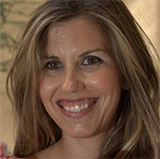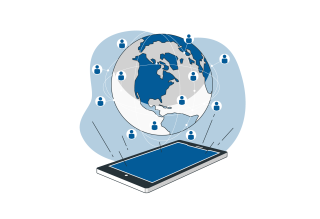- Our Story
- Publications & Resources
- Publications & Resources
- Publications
- IEEE Signal Processing Magazine
- IEEE Journal of Selected Topics in Signal Processing
- IEEE Signal Processing Letters
- IEEE Transactions on Computational Imaging
- IEEE Transactions on Image Processing
- IEEE Transactions on Information Forensics and Security
- IEEE Transactions on Multimedia
- IEEE Transactions on Signal and Information Processing over Networks
- IEEE Transactions on Signal Processing
- IEEE TCI
- IEEE TSIPN
- Data & Challenges
- Submit Manuscript
- Guidelines
- Information for Authors
- Special Issue Deadlines
- Overview Articles
- Top Accessed Articles
- SPS Newsletter
- SigPort
- SPS Resource Center
- Publications FAQ
- Blog
- News
- Dataset Papers
- Conferences & Events
- Community & Involvement
- Professional Development
- For Volunteers
- Information for Authors-OJSP
-
Home
Conferences Events IEEE Signal Processing Magazine IEEE SPL Article IEEE TIFS Article IEEE TMM Article IEEE TSP Article Jobs in Signal Processing Lectures Machine Learning Seasonal Schools Signal Processing News SPM Article SPS Distinguished Lectures SPS Newsletter Article SPS Webinar SPS Webinars SPS Webinar Series Webinar webinars
-
Our Story
What is Signal Processing?

The technology we use, and even rely on, in our everyday lives –computers, radios, video, cell phones – is enabled by signal processing. Learn More » -
Publications & Resources
-
SPS Resources
- Signal Processing Magazine The premier publication of the society.
- SPS Newsletter Monthly updates in Signal Processing
- SPS Resource Center Online library of tutorials, lectures, and presentations.
- SigPort Online repository for reports, papers, and more.
- SPS Feed The latest news, events, and more from the world of Signal Processing.
-
SPS Resources
-
Conferences & Events
-
Community & Involvement
-
Membership
- Join SPS The IEEE Signal Processing Magazine, Conference, Discounts, Awards, Collaborations, and more!
- Chapter Locator Find your local chapter and connect with fellow industry professionals, academics and students
- Women in Signal Processing Networking and engagement opportunities for women across signal processing disciplines
- Students Scholarships, conference discounts, travel grants, SP Cup, VIP Cup, 5-MICC
- Young Professionals Career development opportunities, networking
- Get Involved
-
Technical Committees
- Applied Signal Processing Systems
- Audio and Acoustic Signal Processing
- Bio Imaging and Signal Processing
- Computational Imaging
- Image Video and Multidimensional Signal Processing
- Information Forensics and Security
- Machine Learning for Signal Processing
- Multimedia Signal Processing
- Sensor Array and Multichannel
- Signal Processing for Communication and Networking
- Signal Processing Theory and Methods
- Speech and Language Processing
- Technical Working Groups
- More TC Resources
-
Membership
-
Professional Development
-
Professional Development
- Signal Processing Mentorship Academy (SigMA) Program
- Micro Mentoring Experience Program (MiME)
- Distinguished Lecturer Program
- Distinguished Lecturers
- Distinguished Lecturer Nominations
- Past Lecturers
- Distinguished Industry Speaker Program
- Distinguished Industry Speakers
- Distinguished Industry Speaker Nominations
- Industry Resources
- IEEE Training Materials
- Jobs in Signal Processing: IEEE Job Site
-
Career Resources
- SPS Education Program Educational content in signal processing and related fields.
- Distinguished Lecturer Program Chapters have access to educators and authors in the fields of Signal Processing
- Job Opportunities Signal Processing and Technical Committee specific job opportunities
- Job Submission Form Employers may submit opportunities in the area of Signal Processing.
-
Professional Development
-
For Volunteers
-
For Board & Committee Members
- Board Agenda/Minutes* Agendas, minutes and supporting documentation for Board and Committee Members
- SPS Directory* Directory of volunteers, society and division directory for Board and Committee Members.
- Membership Development Reports* Insight into the Society’s month-over-month and year-over-year growths and declines for Board and Committee Members
-
For Board & Committee Members
Popular Pages
Today's:
- Information for Authors
- (ICME 2026) 2026 IEEE International Conference on Multimedia and Expo
- IEEE Transactions on Information Forensics and Security
- IEEE Transactions on Multimedia
- IEEE Transactions on Image Processing
- Conference Call for Papers
- IEEE Journal of Selected Topics in Signal Processing
- Information for Authors-SPL
- Submit a Manuscript
- IEEE Signal Processing Letters
- IEEE Transactions on Signal Processing
- (ASRU 2025) 2025 IEEE Automatic Speech Recognition and Understanding Workshop
- IEEE JSTSP Special Issue on Advanced AI and Signal Processing for Low-Altitude Wireless Networks
- IEEE Transactions on Audio, Speech and Language Processing
- 2025 IEEE SPS Chapter Initiative: S.P.A.R.C. – Signal Processing, AI & Real-time Computing Camp
All time:
- Information for Authors
- Submit a Manuscript
- IEEE Transactions on Image Processing
- IEEE Transactions on Information Forensics and Security
- IEEE Transactions on Multimedia
- IEEE Transactions on Audio, Speech and Language Processing
- IEEE Signal Processing Letters
- IEEE Transactions on Signal Processing
- Conferences & Events
- IEEE Journal of Selected Topics in Signal Processing
- Information for Authors-SPL
- Conference Call for Papers
- Signal Processing 101
- IEEE Signal Processing Magazine
- Guidelines
Last viewed:
- (SiPS 2025) 2025 IEEE International Workshop on Signal Processing Systems
- IEEE Transactions on Multimedia
- Editorial Board
- Editorial Board Nominations
- IEEE Transactions on Computational Imaging
- 2027 IEEE International Workshop on Machine Learning for Signal Processing (MLSP 2027)
- Decouple and Resolve: Transformer-Based Models for Online Anomaly Detection From Weakly Labeled Videos
- Information for Authors
- Diagnosis of Obstructive Sleep Apnea Using Speech Signals From Awake Subjects
- 2025 14th International Symposium on Image and Signal Processing and Analysis (ISPA)
- Sarcasm Detection with Commonsense Knowledge
- 2025 IEEE SPS Chapter Initiative: SPECTRE (Signal Processing Expo and Creatathon for Technical Research and Excellence)
- Z. Jane Wang
- New Society Editor-in-Chief Named for 2020
- Chapter Resources
Series to Highlight Women in Signal Processing: Dr. Raquel Bailón Luesma
You are here
Newsletter Menu
Newsletter Categories
Top Reasons to Join SPS Today!
1. IEEE Signal Processing Magazine
2. Signal Processing Digital Library*
3. Inside Signal Processing Newsletter
4. SPS Resource Center
5. Career advancement & recognition
6. Discounts on conferences and publications
7. Professional networking
8. Communities for students, young professionals, and women
9. Volunteer opportunities
10. Coming soon! PDH/CEU credits
Click here to learn more.
News and Resources for Members of the IEEE Signal Processing Society
Series to Highlight Women in Signal Processing: Dr. Raquel Bailón Luesma
 Dr. Raquel Bailón Luesma I was born in Zaragoza, Spain, in 1978. As a child, I enjoyed studying and learning new things. I loved Math and the way they can be used to explain almost everything, but I was not attracted to technology at all! I never envisioned myself as an Engineer, but rather thought I would study Medicine, or something related to taking care and healing people. However, during my last high school years I was advised to study Telecommunications Engineering, since it was the “career of the future” by then, and I was skilled at Math and Physics. While studying Telecommunications Engineering at the University of Zaragoza, I enjoyed the most subjects related to signal processing. However, it was not until my fourth year, when Prof. Pablo Laguna, who became later my mentor and PhD supervisor, offered me a traineeship to apply signal processing techniques to the electrocardiogram signal to identify patients with coronary artery disease, that I discovered my passion. At that moment, I decided that I wanted to earn my living developing signal processing techniques to decipher clinically and physiologically relevant information hidden in biomedical signals that can help in the diagnosis and monitoring of diseases. So, I pursued my PhD in Biomedical Engineering, during which I did as many research stays as I could (Canada, Sweden, Italy, France)! I enjoyed living in different countries, learning different ways of thinking, and doing, and I found all of them enrichment experiences both in the scientific and personal level. Some of the people I met during my research stays became friends for life! Then, I soon got a position as Assistant Professor at the University of Zaragoza, where I am currently Associate Professor, combining my teaching on the Telecommunication Engineering Bachelor and Biomedical Engineering Master with my research on biomedical signal processing.
Dr. Raquel Bailón Luesma I was born in Zaragoza, Spain, in 1978. As a child, I enjoyed studying and learning new things. I loved Math and the way they can be used to explain almost everything, but I was not attracted to technology at all! I never envisioned myself as an Engineer, but rather thought I would study Medicine, or something related to taking care and healing people. However, during my last high school years I was advised to study Telecommunications Engineering, since it was the “career of the future” by then, and I was skilled at Math and Physics. While studying Telecommunications Engineering at the University of Zaragoza, I enjoyed the most subjects related to signal processing. However, it was not until my fourth year, when Prof. Pablo Laguna, who became later my mentor and PhD supervisor, offered me a traineeship to apply signal processing techniques to the electrocardiogram signal to identify patients with coronary artery disease, that I discovered my passion. At that moment, I decided that I wanted to earn my living developing signal processing techniques to decipher clinically and physiologically relevant information hidden in biomedical signals that can help in the diagnosis and monitoring of diseases. So, I pursued my PhD in Biomedical Engineering, during which I did as many research stays as I could (Canada, Sweden, Italy, France)! I enjoyed living in different countries, learning different ways of thinking, and doing, and I found all of them enrichment experiences both in the scientific and personal level. Some of the people I met during my research stays became friends for life! Then, I soon got a position as Assistant Professor at the University of Zaragoza, where I am currently Associate Professor, combining my teaching on the Telecommunication Engineering Bachelor and Biomedical Engineering Master with my research on biomedical signal processing.
We approached Dr. Raquel Bailon Luesma with a few questions to learn more:
1. Why did you choose to become a faculty in the field of Signal Processing?
Being passionate about research on biomedical signal processing, it came like the natural path. Although my main research focus is on the processing of biomedical signals, signal processing has countless applications, rapidly spreading into new areas, and is a core element in technological advancements and scientific discoveries.
Being a faculty member gives you freedom to conduct your own research, developing your ideas and getting the resources to implement them. It also gives you the possibility to meet and collaborate with talented researchers all over the world. Moreover, as much as the research, I enjoy the teaching and training of young engineers and scientists. I find working with students very rewarding, helping and guiding them in their learning process to improve their skills towards mastery.
2. How does your work affect society?
Over the years, my research group BSICoS (Biomedical Signal Interpretation and Computational Simulation) has developed methods for biomedical signal processing, driven by physiology, with the aim of helping in the diagnosis, prognosis and treatment of conditions of the cardiovascular, respiratory and autonomic nervous systems. I have mainly worked in the non-invasive monitoring of the autonomic nervous system, whose malfunctioning has been related to several chronic diseases (hypertension, diabetes, depression, obstructive sleep apena). The processing of the electrocardiogram and photoplethysmographich signals in this field has an added value for assessing the disease progression and allowing personalized treatment. Other appealing applications out of the clinical field, especially for signals recorded by wearable devices, are monitoring fitness level and sports performance, stress, and well-being.
Our work as academics also has a big impact on society since we contribute to the education and training of the Engineers of the future, which will need to make significant contributions to society. It is important to educate them to be responsible, to have critical thinking and to excel in their work.
3. What challenges have you had to face to get to where you are today?
For me the biggest challenge is that the time is limited and there are so many interesting applications to work in! More importantly, conciliation of family and work is challenging. We live in a continuum of deadlines which require extensive work during non-standard schedules, and it is difficult to set up boundaries between personal and professional life, especially when you are passionate about your work.
4. What advice would you give to scientists/engineers in the field of signal processing?
It is important to have a deep understanding and background in the field of the application where we are working on to develop and apply the proper signal processing technique. My advice to young engineers and scientists is not to rush to apply the “in fashion” methods to any kind of signals/data. Get a deep understanding of the methods, invest time studying signal processing books and reference papers, get to know the signals/data, and then interpret the results in the light of the underlying system generating them. Pursue to do relevant work rather than just a publication.
5. Is there anything else that you would like to add?
As I mentioned before, it is important to have a deep knowledge of your field of application. This is very difficult to be achieved by only one person, or even one area of knowledge, that is why it is important to work in a multidisciplinary team, collaborating with experts in different areas. Most of our research in biomedical signal processing is done in collaboration with clinical teams and experts in physiology. This is also important to promote the clinical translation of our research.
I also value the collaboration with international researchers all over the world, research has no boundaries! Nowadays, technology has made this very easy but, although it is great to strengthen existing collaborations, it cannot replace the learning and enrichment you get when you do a research stay in a lab.
To learn more about Raquel Bailon Luesma, please visit her webpage.
Open Calls
| Nomination/Position | Deadline |
|---|---|
| Call for Nominations for the SPS Chapter of the Year Award | 15 October 2025 |
| Call for Papers for 2026 LRAC Workshop | 22 October 2025 |
| Submit Your 2026 ICASSP Workshop Paper | 22 October 2025 |
| Submit a Proposal for ICASSP 2030 | 31 October 2025 |
| Call for Project Proposals: IEEE SPS SigMA Program - Signal Processing Mentorship Academy | 2 November 2025 |
| Submit Your Proposals for 2026 Member-Driven Initiatives | 21 November 2025 |
| IEEE Signal Processing Society Annual Election Opens on 17 October | 4 December 2025 |
Technical Committee News
Society News
- Call for Officer Nominations: Vice President-Education and Vice President-Membership
- Call for Nominations for Editor-in-Chief, IEEE Signal Processing Letters
- Call for Video: Five-Minute Video Clip Contest at ICASSP 2022
- 58 Signal Processing Society Members Elevated to Senior Member!
- 2021 IEEE Signal Processing Society Awards Presented in Singapore
- Job Opportunities in Signal Processing
- SPS Announces 2022 Class of Distinguished Lecturers and Distinguished Industry Speakers
- 46 SPS Members Elevated to Fellow
Education & Resources
SPS Social Media
- IEEE SPS Facebook Page https://www.facebook.com/ieeeSPS
- IEEE SPS X Page https://x.com/IEEEsps
- IEEE SPS Instagram Page https://www.instagram.com/ieeesps/?hl=en
- IEEE SPS LinkedIn Page https://www.linkedin.com/company/ieeesps/
- IEEE SPS YouTube Channel https://www.youtube.com/ieeeSPS
Home | Sitemap | Contact | Accessibility | Nondiscrimination Policy | IEEE Ethics Reporting | IEEE Privacy Policy | Terms | Feedback
© Copyright 2025 IEEE - All rights reserved. Use of this website signifies your agreement to the IEEE Terms and Conditions.
A public charity, IEEE is the world's largest technical professional organization dedicated to advancing technology for the benefit of humanity.








